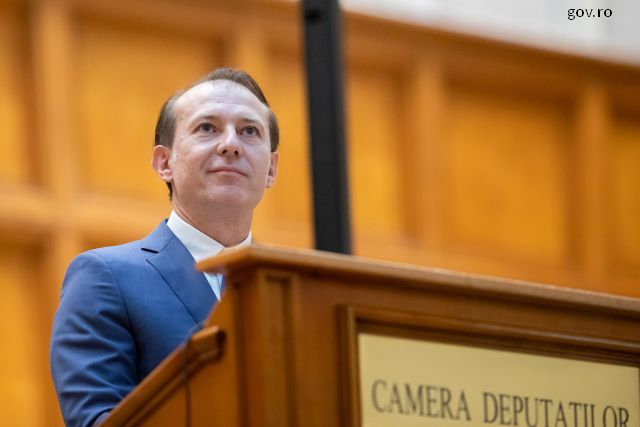A new crisis in the Liberal Party
The Liberals are replacing their party chief after only six months

Bogdan Matei, 04.04.2022, 13:50
An extraordinary
congress of the National Liberal Party, a member of the ruling coalition in
Romania, will be held on April 10 in order to elect a new party president, the
Liberals’ National Council decided this Sunday. As many as 1,300 delegates will
take part. Until then, the head of the Suceava County Council Gheorghe Flutur will
act as interim president.
On Saturday, the Senate Speaker Florin Cîţu
announced his resignation as head of the Liberal Party. Many Liberals had
demanded that he stepped down, over claims that he caused tensions with the
Social Democrats within the ruling coalition, that he failed to communicate to
party members and that he has a poor public image that affects the party’s
scores in voting intention polls.
Cîţu’s opponents would like the party
presidency to be taken over by PM Nicolae Ciucă, who, mass media argue, has a
much better public image and a coherent dialogue with the ruling partners. A respected military professional, Ciucă is
however involved in a plagiarism scandal concerning his Ph.D. thesis.
The former PM Cîţu was elected party president
only half a year ago, in late September 2021. Openly supported by the head of
state Klaus Iohannis at that point, he won a tight election against another
former prime minister, Ludovic Orban, who had been running the party since
2017. Orban claimed that congress saw the most serious
violations of democratic rules ever committed in a political party in the last 31
years. He also announced then that he renounced his partnership with Iohannis,
to whom he had seemed quite loyal up to that point, and in December he quit the
party altogether, and jointly with other former Liberals he set up a new right-of-centre
party.
Founded in 1875, the National Liberal Party has always taken
pride in leading Romania in its most propitious moments: the proclamation of
its independence in 1877, when the country got
rid of centuries-long Ottoman rule, and the Great Union of 1918, when after WWI
all the territories inhabited mostly by Romanians and previously under Russian
and Austrian-Hungarian domination joined the Kingdom of Romania. Outlawed by
the post-war communist dictatorship brought in by Soviet troops, the National
Liberal Party re-emerged in the Romanian political arena shortly after the
anti-communist revolution of 1989, and takes pride in being in power in 2007, when
Romania was accepted in the EU.
But countless in-house scandals in recent years
have overshadowed the public’s confidence in the Liberal Party. In the latest
voting intentions poll, the Liberals stand at 16%, only 1% above the
nationalist AUR party in opposition and 20% below their current ruling
partners, the Social Democrats. (A.M.P.)






























